Suwayda
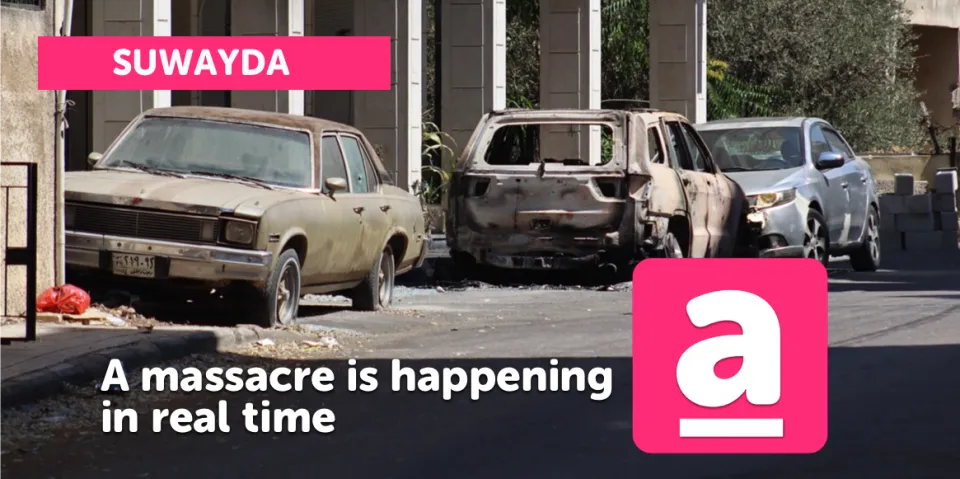
by Rami Emad | Syrian refugee
Update
Day 12 of the Massacre
Since this article was originally written, there have been a number of further developments:
The Al-Sharaa army still occupies northern and western towns and villages of Suwayda (all houses completely looted and burnt).
Continuous attacks and skirmishes are keeping the people of Suwayda frightened and on edge.
Security checkpoints are shooting at any aid convoy or international press attempting to enter Suwayda.
The army have looted Suwayda and shot and set fire to stores, supermarkets and many bakeries.
“They even shot at fridges and long shelf life traditional food storage jars at homes they entered”
— direct quote from close relatives of the writer
The Security forces have videoedemselves proudly shelling Suwayda and the Governorate's Grain Storages with mortars causing a fire.
The snipers have also killed Suwayda engineers attempting to fix power lines to provide electricity to local water pumps to restore urgent water.
Families are being torn apart. There is evidence of more than 800 civilians kidnapped, mostly whole families (the men have been killed and the rest of the family — women and children — have been taken as “spoils of war”).
Mobile phones are being looted, hacked and re-purposed to spread disinformation through social media. Disinformation and panic.
Evidence is coming to light of professional military manipulation of hundreds of personal facebook accounts. These are then being used to bait and ambush relatives and friends into fleeing towards danger zones.
Suwayda is under siege.
Suwayda
written 20 July 2025
There is an unfolding massacre taking place in the city of Suwayda, in southern Syria. Civilians — predominantly from the Druze community — are being systematically targeted by forces under the command of President Al-Sharaa.
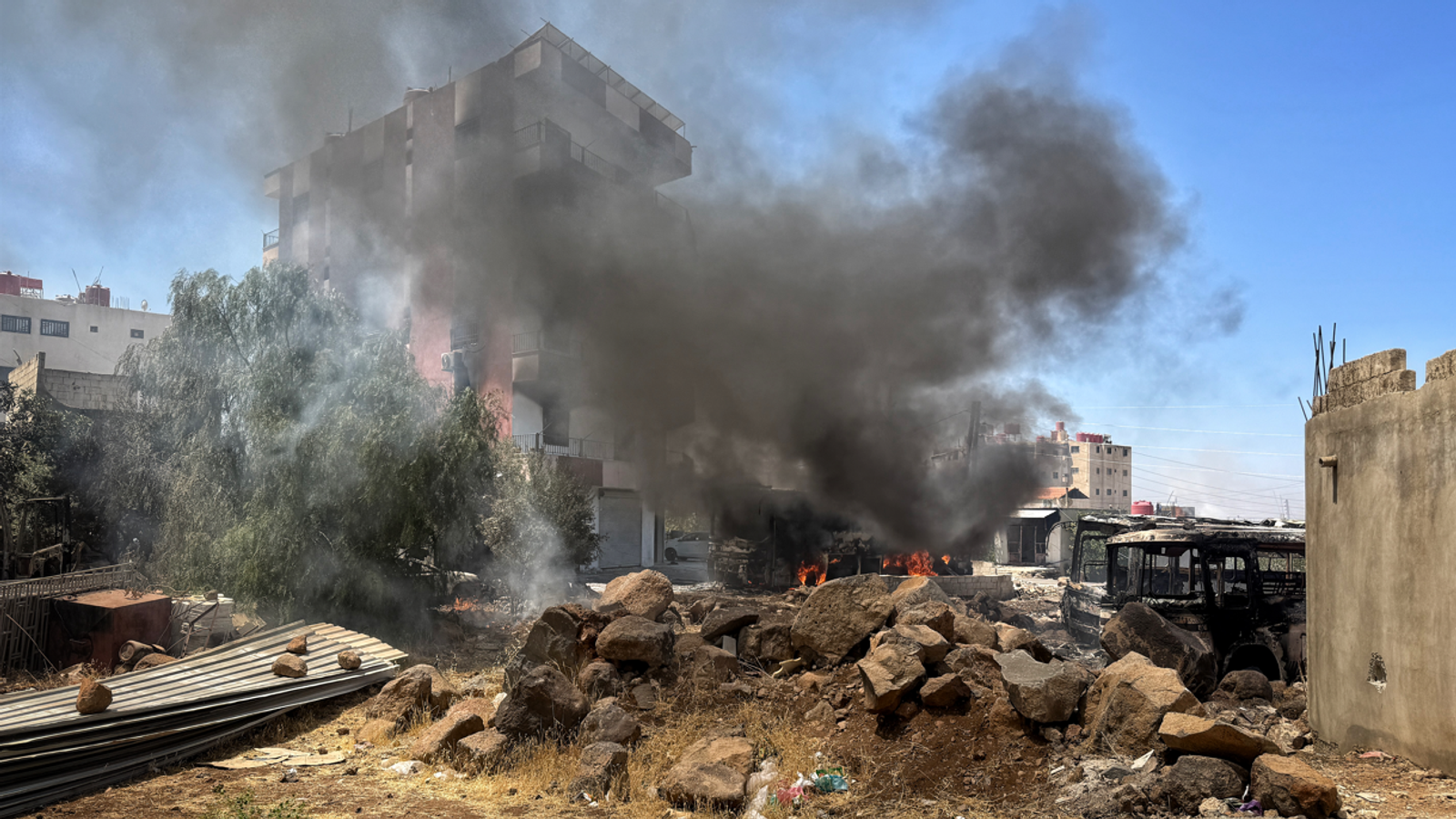
Over the 15 & 16 July, Al-Sharaa’s forces violated a ceasefire agreement reached with local Druze leaders, in which the Syrian army pledged to enter the city peacefully and avoid harm to civilians. In return, local fighters agreed to lay down their arms and surrender control of Suwayda—a city inhabited primarily by Druze and Christian communities.
As soon as the army was allowed to enter, its true intentions were revealed. What emerged was not a peacekeeping force but rather was composed of Islamist extremists with known affiliations to former ISIS and Al-Nusra (HTS) units.
Once inside the city, these forces launched door-to-door invasions, executing civilians indiscriminately, especially those who refused to open, or those wearing traditional Druze attire. They looted homes of all valuables, including wedding rings, mobile phones (forcing civilians to hand over passwords at gunpoint), and vehicles.
In several neighbourhoods, snipers were positioned to shoot civilians attempting to flee or seek medical aid. Eyewitnesses reported severe human rights abuses against Druze men who were rounded up into main squares across the city. In one example, over 100 Druze men were herded into Al-Jarrah Square, where they were beaten, interrogated, and forcibly disappeared. Civilians were executed in front of their families, their bodies desecrated, mutilated, and even run over by military vehicles.
Religious institutions have not been spared. The Mar Michael Church in Sawara Kbera and numerous Druze shrines were desecrated and looted. The Army massacred a whole family of the Priest (mixed Druze and Christians were hiding in the church). The Suwayda’s National Hospital was besieged and heavily shot at, injured civilians seeking treatment were attacked, and a local doctor, Dr. Faten Hilal, was shot in the head and killed in the field on her way to provide urgent aid.
Graphic videos—filmed and circulated by the perpetrators themselves—show scenes of elderly Druze clerics being humiliated, their turbans trampled, their faces and moustaches (which hold deep religious significance) disfigured with blades, all while being taunted as “Druze pigs.”
In one documented incident, twenty members of the Rudhwan family, including two children, were slaughtered in their home. Other massacres remain unconfirmed due to lack of access, but witnesses have described similar atrocities across multiple neighbourhoods.
In response, Al-Sharaa withdrew regular forces and deployed his most brutal unit,
The Red Bands — a militia known for their fanaticism and equipped with advanced gear, including night vision optics — were very brutal in Suwayda, but the locals managed to repel them at a heavy cost of lives in the second day of the massacre.
Initially, the neighbouring Israeli government did nothing to help stop the attack. Only after an outcry from the Israeli Druze community did the IDF launch symbolic airstrikes targeting a few Syrian army tanks and heavy weapons, more as a message to its own citizens than a genuine attempt to stop the bloodshed.
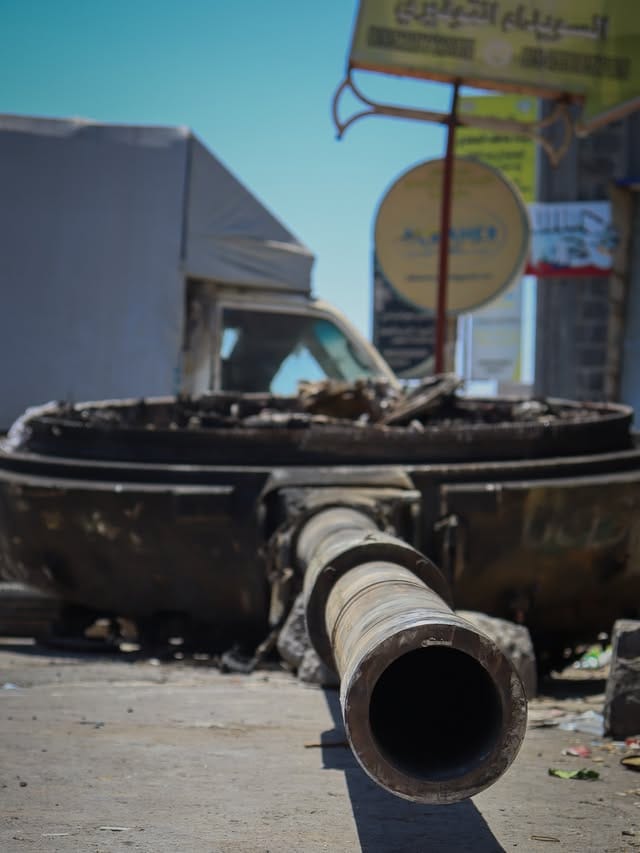
This is not an isolated event
On March 9, 2025, President Al-Sharaa established a fact-finding committee to investigate the coastal massacres in which, according to a Reuters investigation published on June 30, 1,479 civilians—predominantly Alawite—were executed, many after being tortured and interrogated. Amnesty International described these killings as "systematic and coordinated," and called on the Syrian government to release the full findings of the committee.
That committee’s mandate was quietly extended on April 10 for three additional months (non-renewable). Yet, as of July 10—after the deadline passed—there has been no mention by the government of receiving the report or its content. This silence raises grave concerns about the state’s role in concealing its own complicity.
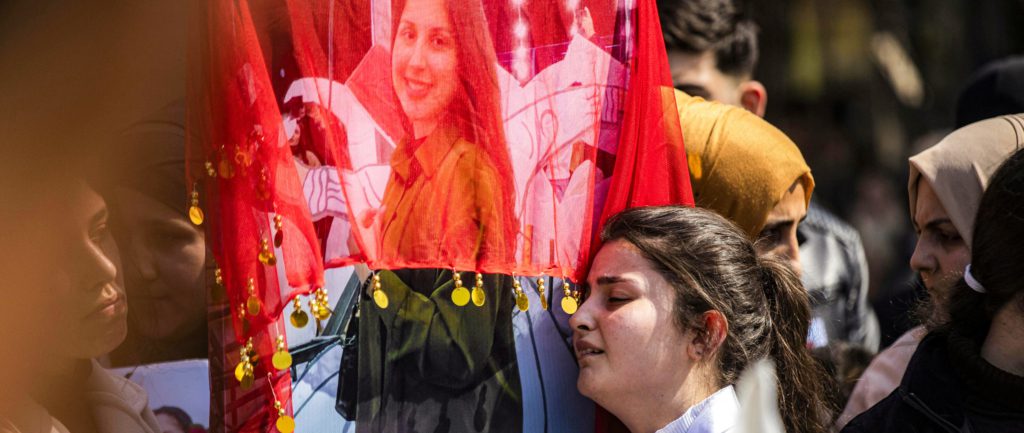
The Syrian Network for Human Rights (SNHR) concluded in its May 2025 report that:
“The vast majority of civilian casualties in the coastal massacres were the result of deliberate executions by state-affiliated forces.”
The Syrian Center for Media and Freedom of Expression (SCM) independently released findings directly implicating the government in both the killings and the systematic obstruction of justice
Taken together, these events form a clear pattern: the Syrian state, under the leadership of Al-Sharaa, has become not merely a negligent bystander but an active facilitator—and increasingly, a perpetrator—of atrocities against civilians across sectarian lines.
What the UK can do
The United Kingdom must:
- Immediately issue a formal condemnation of the massacre in Suwayda and the broader pattern of state-facilitated atrocities.
- Call on President Al-Sharaa to immediately cease all military operations in Suwayda, withdraw all forces, allow full humanitarian access, and permit an independent international investigation into the recent atrocities in the city of Suwayda.
- Demand the immediate public release of the coastal massacre fact-finding report and its methodology.
- Support international efforts to establish accountability for mass atrocities and crimes against humanity in Syria, including through independent international mechanisms.
- Coordinate with allies to place sanctions on individuals, units and officials and commanders implicated in these atrocities, having overseen the current Suwayda operation.
The people of Suwayda are being massacred in real-time. Failure to act now will be remembered not just as political inaction but as moral abdication.
We call on the UK to take a principled stand in defence of civilian life and international justice.
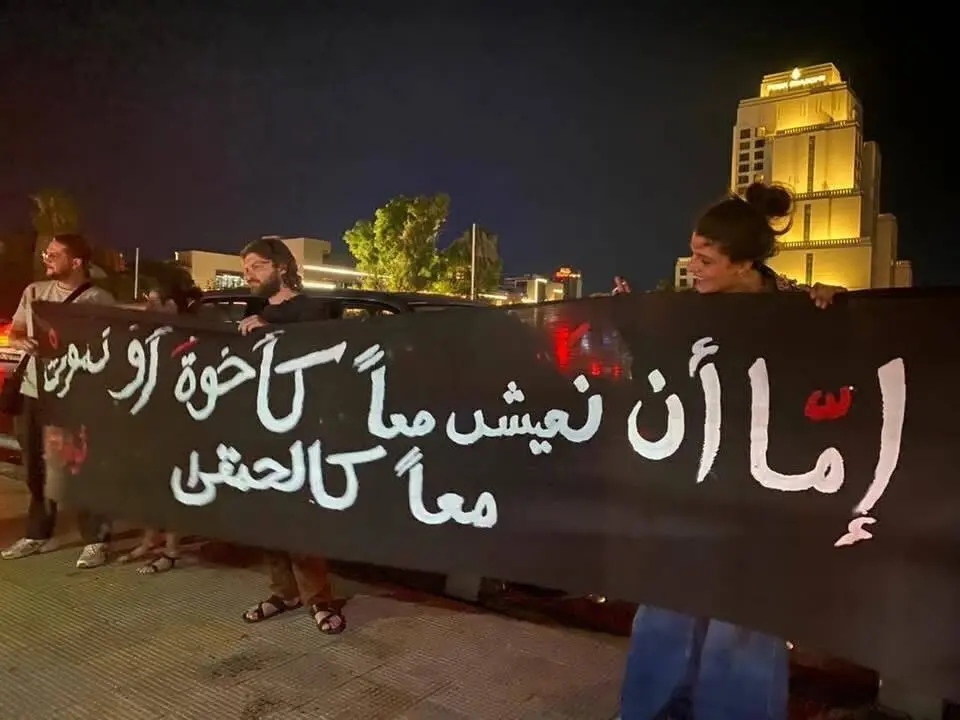
Note on the above picture. These protesters were physically assaulted and prominent journalist and activist Zeina Shahla was arrested.
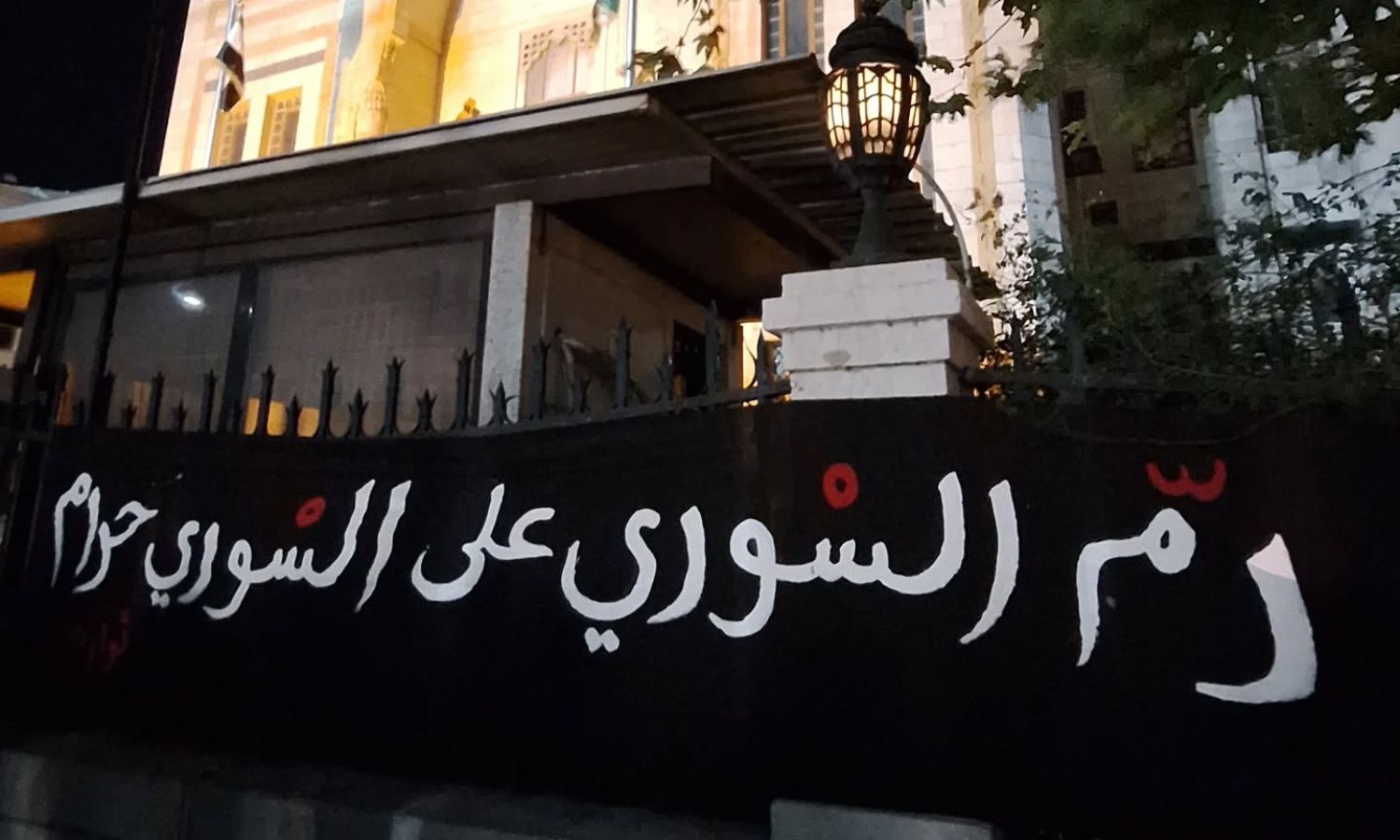
What you can do
Write to your MPs and to the media (BBC, Sky, Channel 4 News), calling for:
- Aid convoys to be allowed in under international protection
— aid convoys are stopped at security checkpoints and shot at if they attempt to enter - Al-Sharaa to release all kidnapped civilians
- Al-Sharaa forces to withdraw out of Suwayda Governorate as agreed in the ceasefire deal
- Full media access to Suwayda
- An international fact finding mission



Rami Emad is a Syrian refugee, living in Stroud


Amplify Stroud is supported by Dialect rural writers collective. Dialect offers mentorship, encouragement and self-study courses as well as publishing.
You can find out more at https://www.dialect.org.uk/


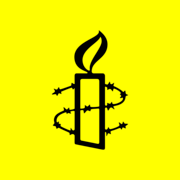






Member discussion